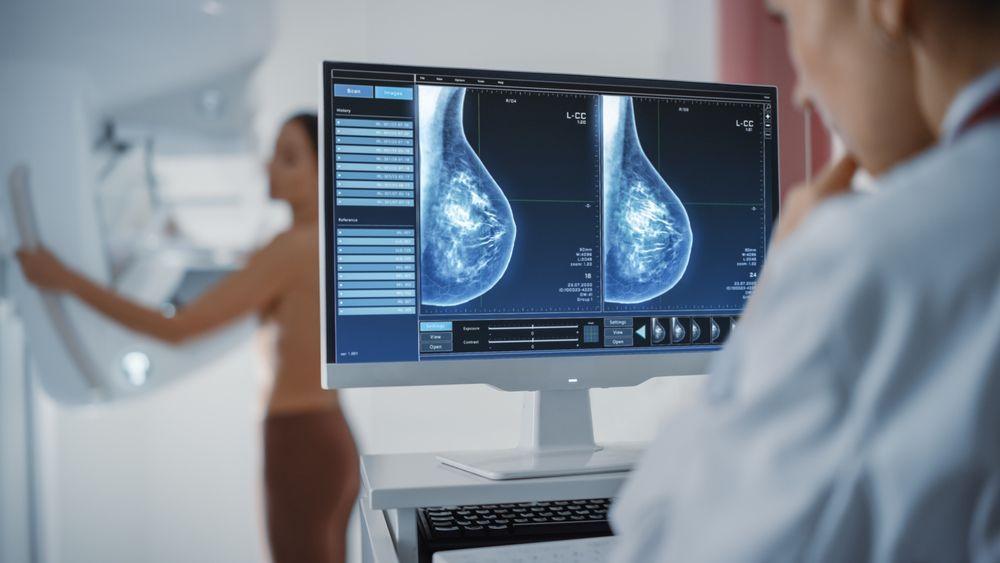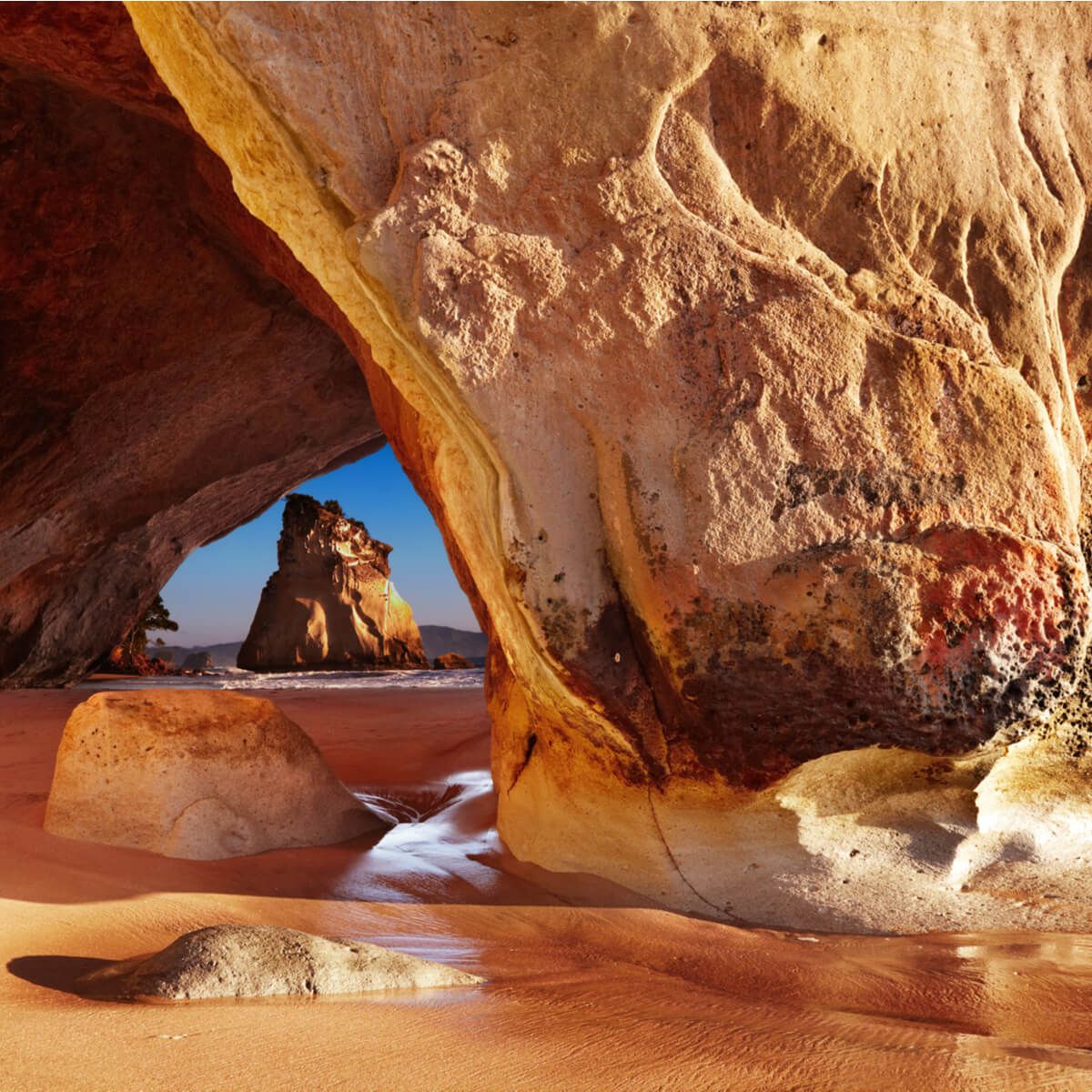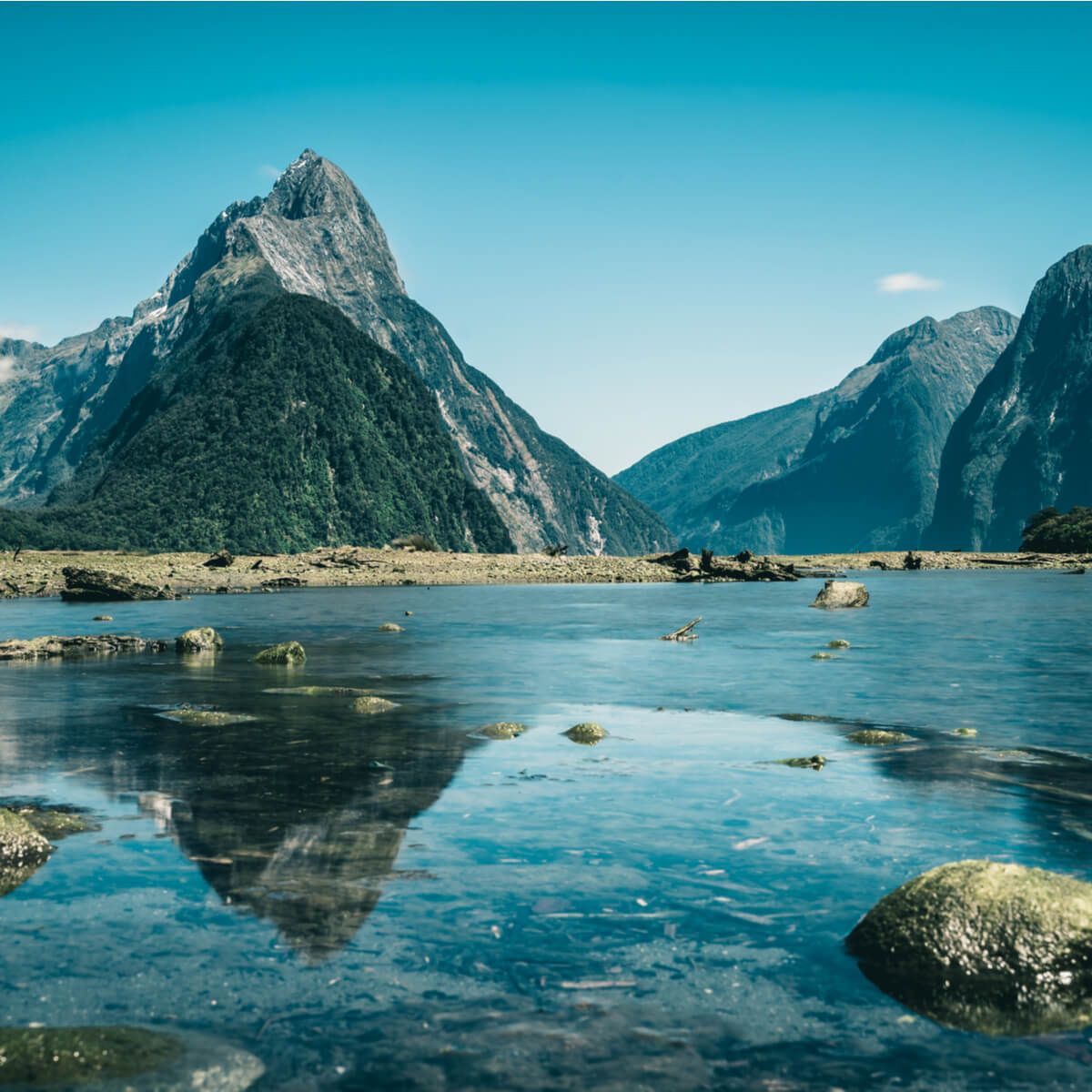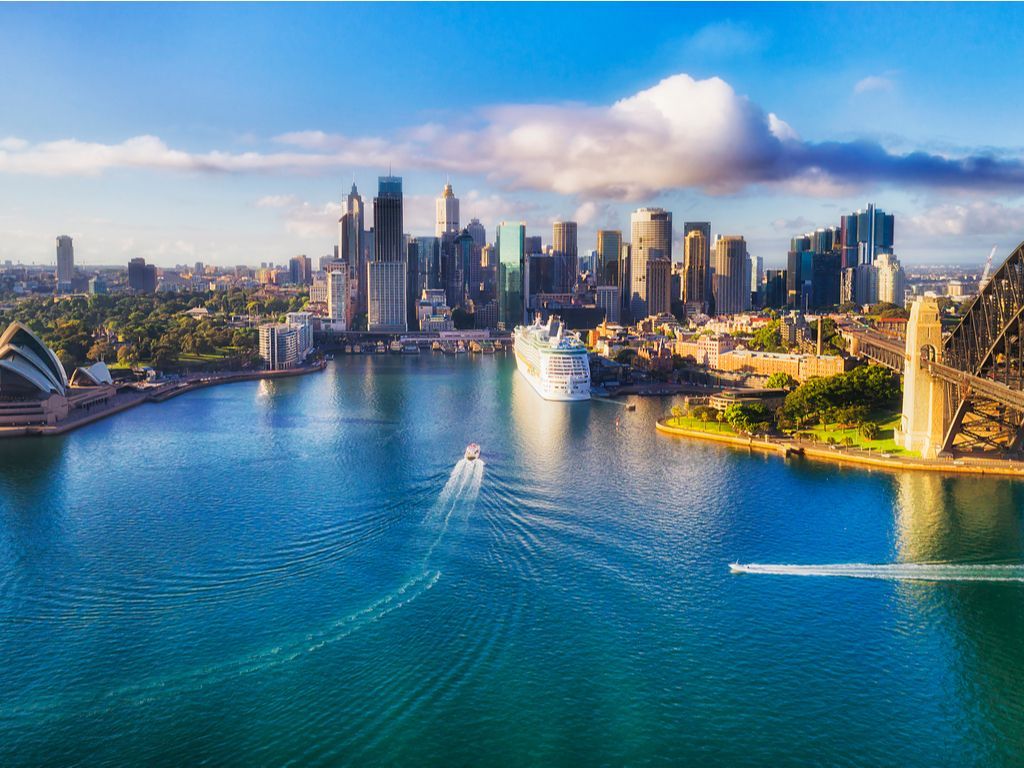German Paediatrician Secures Senior Job in New Zealand with Recruiter Designed Job Search
Despite featuring on Immigration New Zealand's Green List as a shortage skill, paediatrics is a competitive speciality in New Zealand and finding a job can be a lengthy and arduous task. Dr EM had been looking for some time when she approached Odyssey for assistance with her job search.
Background
Dr EM was educated in Germany where she completed an undergraduate medical degree followed by postgraduate training in paediatrics. She first visited New Zealand during her sabbatical in 2016 and was enchanted by the beautiful country where some of her family had already settled. Determined to follow in their footsteps, she started to look for consultant paediatrician jobs but there were few positions available and those advertised received many applicants both local and international.
Dr EM contacted Odyssey for advise and our recruiter developed a job search strategy revolving around her career and lifestyle goals, focusing on the hospitals where her broad general experience in paediatrics would be appreciated. An opportunity arose in the Bay of Plenty at a small 125 bed satellite hospital with a busy paediatric department providing secondary level care to a population comprising local residents, large Maori communities and tourists. With a varied and challenging case load, the job seemed to be ideal.
The recruiter guided Dr EM through the recruitment process including CV and cover letter drafting to include key information followed by interview preparation and job offer negotiations and then registration with the Medical Council of New Zealand and visa application.
Eventually, Dr EM moved to New Zealand on a permanent basis, working as a consultant paediatrician at Whakatane Hospital in the Bay of Plenty, North Island. The Bay of Plenty is one of New Zealand's most beautiful coastlines with fabulous beaches and is a top destination for both professional careers and tourists.
Discussion
Q: What does the everyday business in your new position look like?
I am working 1.0 FTE, 40 hours a week which consists of both clinical and non-clinical work. The clinical work includes rounds on both the children’s ward and the SCBU (special care baby unit) as well as outpatient clinics in Whakatane Hospital or in outreach clinics. The non-clinical work can be administrative, patient-related – such as clinic letters or referrals – meetings, teaching, or training and journal reviews.
We have a roster of seven weeks; usually, I would be on the children’s ward and the SCBU for one week each during this period. The other five weeks consist of four weeks with clinics (usually one whole day and one morning or afternoon clinic, or three half-day clinics) and one ‘rebalance’ week where we take over for whoever is on leave. Usually, the on-call roster is one day during the week and a shared weekend every three to four weekends.
Since we have no registrar, only an SHO during work hours, on the ward, the on-call work can be a lot. There are only two HOs on the night roster for the whole hospital and the ED staff. For everything related to delivery or c-section, the consultants are called in.
Night shifts start at 4pm, you get your handover, and then, initially, you have a lot of work to do on the ward or in the ACU for the first few hours. The workload usually flattens out from there, but you will always have something to do. And things come down to the individual night, how many call-ins you get. We try not to roster anything on the days after our on-call nights in case we are up during the night. When that is the case, we can go home the day after. We get fatigue days after the weekend nights as well.
Our children’s ward has 10 beds, the SCBU has three cots; both can be filled over capacity sometimes. Occasionally, we have children in the ACU (acute care unit) as well, for example when they are critically ill, on high-flow or CPAP and need constant monitoring and one-on-one care.
Q: What particularities of the medical systems in New Zealand stand out to you? Are they very different to Germany?
People were trying to explain the New Zealand (Kiwi) medical and healthcare system to me before I made the move; I could just not picture it. I think it’s one of those things you have to experience in practice to properly understand. There’s some things that are completely different. For example, the ED (emergency department); in Germany, we don’t have ED medics in that sense, so each department, including the paediatric department, just handled their emergencies themselves. That is different here and was really unfamiliar to me.
You have the ED doctors, the registrars, the SHOs, and so forth, and they will look at all patients and only call you in as a consultant when they have a specific issue, when they’re unsure if they can release someone, or when they want to confirm with you to keep someone in.
The requests vary depending on the level of experience of the person examining a patient, from asking a consultant for their help and opinion to simply asking for their approval when they’ve basically already made a decision. I noticed that, even though you’re always speaking to fully trained medics, quite often you don’t really know what status a doctor has. Sometimes they’ll tell you and sometimes you can tell quite clearly from interacting with them.
The other thing I noticed is that when you don’t explicitly tell your colleagues to do something, they simply won’t. For example, I thought it would go without saying (literally) to test a patient for covid19. However, my colleague didn’t do so. I learned to say really everything out loud and to consider nothing a given.
Within the hospital we have individual wards as well as outpatient clinics. These clinics aren’t primary but secondary care, they are specialised. That was really interesting for me too because it is different to how you would operate at a German practice.
For example, in Germany we would refer children to a psychologist in cases of ADHD, autism and psychological conditions. Here, paediatricians just deal with such things themselves because psychologists are so overstretched, they will only accept acute cases. A psychologist might consider something a banality, but you, as a paediatrician, may not and are still expected to determine the right treatment, prescribe medication, et cetera.
So, when working in paediatrics in New Zealand, a lot more specialised work is expected from you and I’m now busy doing additional study in a number of fields to catch up. As a trained paediatrist, you do know the basics of psychology or whatever it is, but running the entire therapy yourself is a completely different kettle of fish. Although I guess it’s a factor as well that Whakatane is rural, so there will naturally be fewer specialists available and the work will be left to other practitioners.
In contrast, as a paediatrician in Germany, I would vaccinate children myself. Here, vaccinations are exclusively done by nurses. Paediatricians in German practices would read x-rays, here you have radiologists to report X Rays.
All of these are differences but not necessarily bad ones. I find it really interesting to try out a different approach to things, although I do sometimes feel like I’m doing my entire medical training again in literally a different language. Sometimes it’s tough as well. Like when you’re treating children who have cancer, it will be you who cares for them with support from Starship Foundation (Starship is the tertiary paediatric hospital in Auckland) rather than a psychologist. One of my colleagues refers to such situations as ‘uncomfortably interesting’ which has become one of my favourite sayings.
Generally speaking, I was never the biggest fan of hospital work on the wards, I’ve always preferred work in clinics, but here, because the hospital is so small, I have the feeling that I can work so much better and effectively. Of course, there’s busy days as well, but I always feel that there’s sufficient time to properly focus on something, to even look things up and consult with colleagues, without thinking you’re running out of time to complete your workload.
Q: Are there sufficient resources for you to fulfil these additional specialist requirements?
It’s pretty good, actually. In New Zealand, there’s a big emphasis on guidelines. Starship Hospital, for example, will provide guidelines, Hamilton as well and you have constant access to these online. You have the New Zealand Formulary for medication and there’s a range of other resources provided that I would use to look things up.
You can always ask colleagues as well, the inhibition threshold to approach one another is really low. And what I find really pleasant is that, since we are such a small, rural hospital and sometimes more or less left to our own devices, we can phone Starship or other organisations and hospitals at any point and they will be super nice and helpful. It’s all working really well, I have to say.
Q: What is your experience of arriving in New Zealand? Are you finding it easy to settle in?
I knew what I was signing up for in terms of country, people, customs and such. But it’s been a while since I have last been in New Zealand, so many things felt quite different or unknown or uncomfortable – it took me a while to settle back in. There are still a few things that I find challenging; I still can’t seem to be able to cope with Māori names, it feels like I am not able to remember them!
I had forgotten how long it takes you to get used to the different earth spin – I was dizzy for four weeks! And the fact that everything is the other way round than in Germany, even the doors open the other way, messed with my head quite a bit. It felt like I had to rewire my brain to spin the other way around as well! It took me nearly a month to remember places and streets I have been before and how to get there. Very weird!
Most things were really easy to remember and comfortable right away though. It was easy for me to drive on the other side of the road, although pavements were a different story. Europeans tend to walk on the right side when making way for oncoming pedestrians, Kiwis walk on the left, so if you don’t pay attention, you can walk into someone quite easily.
The thing about New Zealand is that everyone is being super nice, the people are lovely, but it’s all quite superficial. So, you’re making a lot of great contacts, you’re having pleasant interactions with people at the supermarket or wherever, but those aren’t deep friendships. And developing deep friendships with the Kiwis takes a while!
I still have a lot of friends from my sabbatical in 2016 spread around the island, but within my neighbourhood I don’t really have any deep contacts yet. I live in a rural area, in Ōhope near Whakatane; I have a super nice neighbour, everyone always greets one another, it’s all really pleasant. For example, I had a great chat with someone at the food shop who instantly wanted to know what I do for work. It’s lovely and gives you the feeling of being welcome, even if it’s not a deep friendship.
It was funny at work; the hospital is so small, you will be known all over the place. Everyone was aware there’s a German paediatrician arriving, at places I didn’t even have to introduce myself because my colleagues immediately went ‘oh yeah, I’ve heard about you.’ So that was practical!
It was a very tough start to my working life here because I arrived in the middle of the main season for RSV infections. The ward was the fullest it’s been the past months, all beds were taken and we had another four children in the ACU. And the kids were seriously ill, so they required a lot of care and we had a whole lot of work to do.
The weather was another factor. I left Germany during a heatwave and arrived to it absolutely bucketing it down here. People kept telling me it was the wettest winter in ages – that’s the other thing, of course, the seasons are the other way around – it was literally like standing in a shower for weeks. So there was me thinking, fantastic, I timed that one well. But it was nowhere near as cold as I expected and it is getting warmer now.
I had also applied for a position in Invercargill in the South Island, and I’m quite glad that things didn’t work out with that. They had constant snow and frost down there; someone here was telling me that he used to live in Invercargill for a couple of years and had never been so freezing cold. Thank goodness’ I ended up in the Bay of Plenty!
And I am really happy to be here in this particular area, it’s so beautiful. I can look out to the sea from my balcony, I can hear the sound of the waves, it’s fantastic. And every time I drive to the hospital as well, I think to myself, yes, you made the right decision moving here.
Q: How is living in New Zealand permanently different to having lived there temporarily during your sabbatical?
I remember back in 2016 I always had the feeling that I had to do things straight away whereas now I am much more relaxed knowing I have all the time in the world. That’s from travelling to different places right up to trivial things like doing your grocery shopping. I’m standing in front of a shelf thinking, do I take this chocolate or that or both or none, and then I remember, it doesn’t matter, I have time. You don’t have the stress of wanting to try everything out within a limited space of time, what you don’t get now, you’ll just get next time. Same with visiting places or restaurants, you don’t have to do it straight away, you’re here long-term and the opportunity is there.
Everything was new during my sabbatical. I went through all the stages - I’m on holiday, but it’s a really long holiday; feeling a bit homesick; and then that sense of I’m gradually settling in. And at that point I had to fly back home. When you’ve finally settled in, know how things work, feel comfortable, found friends, that’s when you leave and are once more completely out of the loop. That was pretty tough.
When I got here this time I was over the moon. I was so thrilled to have sorted all the organisational matters, the stress of moving was done, and I had finally arrived – I felt like I was floating on a cloud the first couple of days. In a way, it was like making a cut, but in a good way. You’re not hanging between two worlds, you have decided okay, this is my life now and you start building it. It’s a completely different feeling but a nice one - you’re starting to create something.
Q: What attracted you most to New Zealand as a destination to relocate your career to?
Everything: the landscape, the people, the climate, the Kiwi way of doing things. Even if it is still medicine and therefore sticking to guidelines and strict routines, it is so much less stressful than working in a hospital in Germany, even when we have a heavy workload, as happens frequently because we are very rural and don’t have registrars. And, I feel so much more appreciated as well.
Q: Quite a few of your family members are very attracted to New Zealand and have moved there; did that play a role in your decision?
Yes, definitely. The thing you miss the most when moving overseas is friends and family, so having family nearby helps. When moving somewhere else, you always have to settle into a foreign culture and lifestyle there and when you have someone there who you have been close to forever, it’s like a piece of home that’s with you.
My whole family is here. Basically, we were all attracted to New Zealand and things just kept developing. Everybody was looking into work here, into requirements to make the move, and started doing speciality training and so forth as appropriate. My brother moved here in 2018 and pretty much the rest of us came over this year, one by one over the course of the months.
My sister works as a registrar in Palmerston North now, so we exchanged a lot of thoughts and supported each other while we were going through all the formal processes. I could ask my brother questions as well and someone would always have an answer. It seems everyone finds out different bits of information and being able to exchange that between ourselves made things easier.
Q: In what ways does the Kiwi lifestyle differ from Europe? Is it easier to maintain a healthy work life balance there?
Yes, definitely. I would describe the Kiwi way as much more relaxed – you’d rather not finish in time than get stressed or collapse under the workload. It is as if the Kiwis know how to stay healthy. And the healthy lifestyle is important. Our hospital has courses for the staff to deal with difficulties and stress, mindfulness workshops and such. We have a gym onsite, fittingly named SWEAT – staff wellness, exercise and training. I think that says it all.
Our roster is created in a way to guarantee that we have enough time to recuperate. For example, we have the Monday as fatigue day after a 24-hour-shift on Sunday. The Friday/Saturday night person has Sunday off. We make sure that we don’t have anything booked if we are on call during the week so that we could take the day off or do administrative work from home if the night was bad.
Some aspects of cultural life you can really only grasp when you’re actually onsite, social interactions for example. The landscape is another thing; you can look at photos and get an idea of it, but actually seeing it is a different story – it’s absolutely breath-taking. For me, the beach is the perfect way to unwind. Wind and waves, that just makes me relax.
Q: How did you find the preparations and the relocation process?
It was A LOT!!! Basically, it took me about five years. I started the process in 2018 with the application to the council. The application process changed during that time which slowed my application down; I had the preliminary advice in 2019. All my applications for jobs were denied, and then Covid hit as well – that made everything even worse.
It was just a tad easier the second time around. I decided not to wait for the Med Recruit team anymore but to apply myself; I got a few refusals as well. And when I found Odyssey Recruitment and Karen, suddenly things moved forward. It was just a matter of doing paperwork, heaps of it; if you’re looking to move to New Zealand, don’t be discouraged by the load of paperwork and keep doing it. As long as I felt that I was moving forward, it was easier. And Karen was very good in encouraging me!
Since my family moved too, we sold our house and got rid of a lot of things. We had a moving company and shipped a big container to New Zealand. The days before the container arrived were pure chaos; I would advise everybody who plans to move to start throwing things out at least a year before – it takes you ages. And I don’t like to get rid of things that are still good. Selling these things or giving them away takes a LOT of time! I kind of did that until the last minute. And when I arrived at the airport, it felt like a burden had been lifted off my shoulders.
Q: What advice would you give to medics considering a move to New Zealand?
Take your time in preparation. Start early. Try to find someone who already went through the process or a recruiter to help you. Most of the things are impossible to figure out from abroad, you can’t find the information on the internet. When I think about the millions of questions I asked Karen … And when you live in Germany and you hear and speak German all day every day, it is difficult to read through all the information written in fairly complicated English, so taking sufficient time is crucial.
Summary
- Competition for paediatrician jobs in New Zealand is intense so thorough preparation of the job application is essential to ensure that all relevant information about the qualifications, experience and skills required for the job is clearly and concisely presented.
- The scope of practice varies between hospitals depending upon the population demographic served and the size of the hospital.
- Paediatric departments without registrars split the work between consultants and house officers, who by definition are inexperienced. The consultant therefore bears the brunt of the workload including out of hours calls.
- The advice of a recruitment consultant who knows the job market and professional regulatory framework is invaluable.
Candidates who are interested in working as doctors in New Zealand are invited to register a CV and contact us to discuss a job search. Advertised jobs can be viewed on our website and applications made by uploading a recent CV.
Share this post on Social Media
Leave a Comment
SEARCH JOBS
Ready for a change? Whether you’re looking for higher compensation, greater autonomy, a better work-life balance, or just a change in scenery, we have job opportunities in wonderful locations across the world. Start your medical or dental job search today and embark on your next career move.
SIGN UP FOR JOB ALERTS
We believe everyone deserves to find their dream job. Be the first to hear about new practice opportunities in exciting locations across the world Simply sign up for job alerts in your chosen field, and we will email you when a new job in your specialty becomes available.
More Insights












